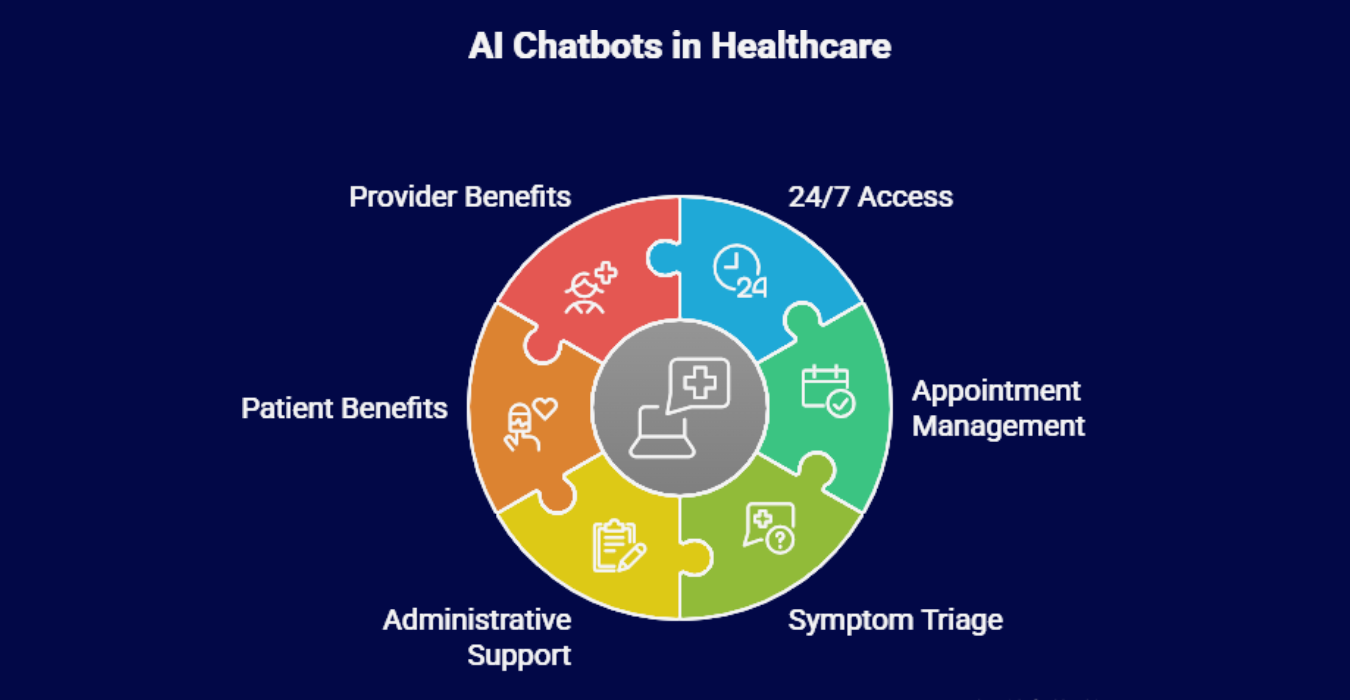The Digital Front Door: AI’s Revolution in Patient Care

The very first interaction a patient has with a healthcare provider is undergoing a radical transformation. Cumbersome phone calls and long wait times are being replaced by intelligent, 24/7 AI-powered chatbots, creating a new “digital front door” that is revolutionizing patient access and triage.
This technological shift is not merely a matter of convenience; it’s a strategic move to enhance the patient experience, improve staff efficiency, and streamline healthcare delivery from the initial point of contact. At the heart of this revolution is the deployment of sophisticated AI chatbots capable of handling a multitude of tasks that have traditionally burdened administrative and clinical staff. From scheduling appointments at any hour to providing initial symptom assessments, these digital assistants are becoming an indispensable tool for modern healthcare organizations.
Round-the-Clock Access and Seamless Appointment Management
One of the most significant impacts of AI chatbots is their ability to offer continuous, 24/7 access to care. Patients are no longer restricted to office hours to manage their healthcare needs. Whether it’s 3 AM or a public holiday, an AI chatbot can help a patient book, reschedule, or cancel an appointment in real-time, directly integrating with the healthcare provider’s scheduling system. This immediate and autonomous service drastically reduces the game of phone tag and eliminates the frustration of waiting on hold, leading to a more positive and empowering patient experience.
Intelligent Symptom Checking and Triage
Beyond simple scheduling, AI chatbots are increasingly equipped with advanced algorithms to conduct preliminary symptom checks. By asking a series of targeted questions based on established clinical protocols, these bots can help patients understand the urgency of their health concerns. The chatbot can then guide them to the most appropriate level of care, whether that’s scheduling a routine check-up, directing them to an urgent care clinic, or advising them to seek immediate emergency services. This initial triage process not only provides patients with timely guidance but also helps to ensure that emergency departments are not unnecessarily overwhelmed with non-critical cases, allowing clinical staff to focus on patients who need the most urgent attention.
Instant Answers to Administrative Queries
A significant portion of front-desk staff time is dedicated to answering a recurring set of administrative questions. AI chatbots can be trained to handle a vast array of these queries, from providing information about clinic hours and locations to explaining insurance coverage and billing procedures. By offloading these routine tasks, chatbots free up administrative staff to focus on more complex patient needs and higher-value activities, leading to a more efficient and less-strained workforce.
For Patients, the advantages are clear:
-
✓
Increased Convenience:
24/7 access to scheduling and information. -
✓
Reduced Wait Times:
Instant responses eliminate phone queues. -
✓
Improved Guidance:
Timely triage helps navigate the healthcare system. -
✓
Enhanced Engagement:
Proactive communication fosters involvement in care.
For Providers, the benefits are compelling:
-
✓
Increased Staff Efficiency:
Frees up staff for high-value tasks. -
✓
Reduced Administrative Burden:
Decreases inbound calls significantly. -
✓
Optimized Patient Flow:
Better triage improves resource allocation. -
✓
Lower No-Show Rates:
Automated reminders and easy rescheduling.
In conclusion, the integration of AI chatbots as the digital front door is more than a technological trend; it’s a fundamental shift in how healthcare is accessed and delivered. By providing immediate, intelligent, and interactive support, these digital tools are not only improving the patient journey from the very first click but also creating a more efficient and sustainable healthcare ecosystem for the future.


